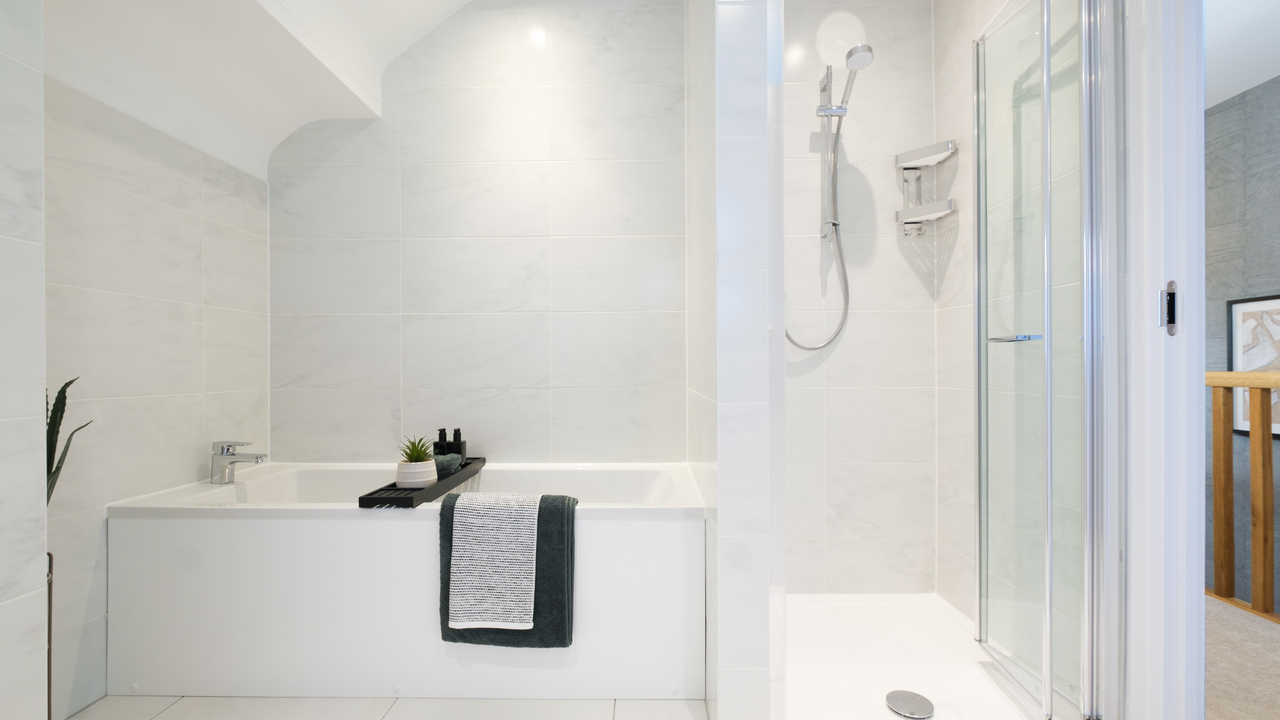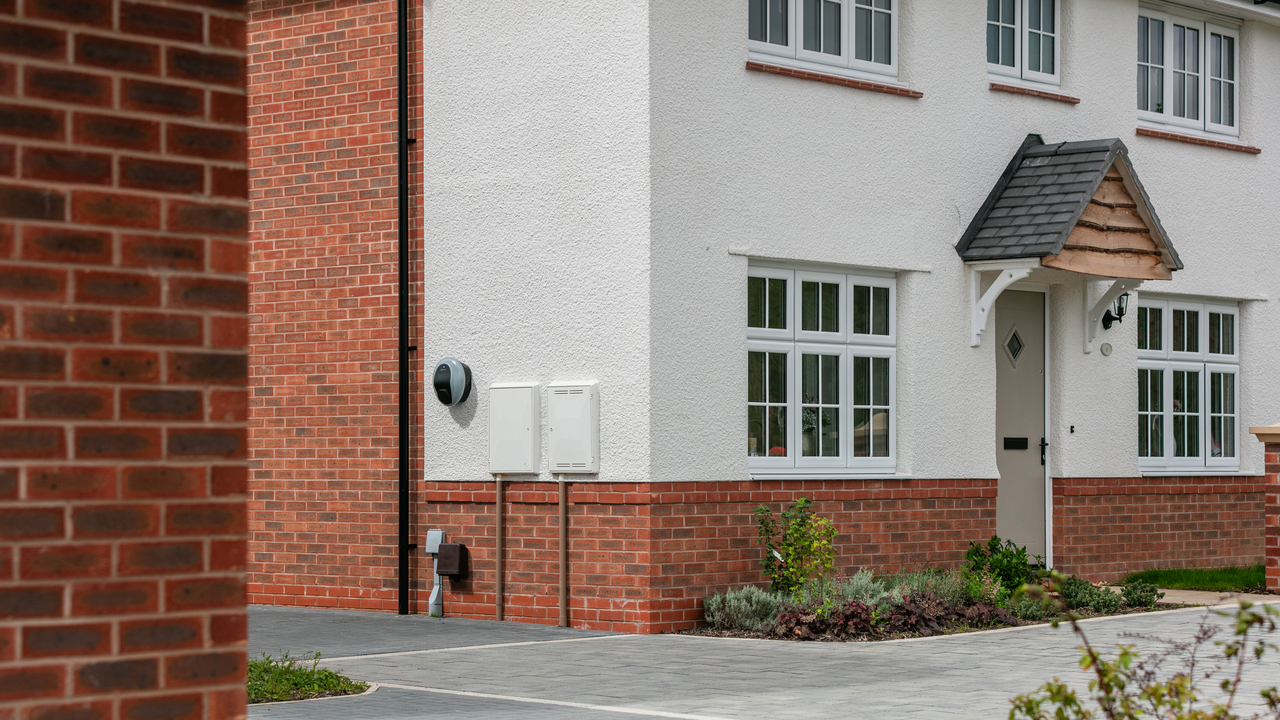But you can make a change at any time of the year. Read on to discover our guide to making your house an eco-friendly home including recycling ideas and how to lower your carbon footprint and help to protect the environment at home.
1. Four ways to reduce, reuse, recycle
Sustainability manager Olivia Parry said: “The ‘three Rs’ – reduce, reuse and recycle – are a great starting point when thinking about the little things you can do at home to help the planet.”
- Reduce your household waste and your food miles by choosing locally sourced items with less packaging. Olivia said: “A veg box delivered to your door is likely to create less waste and have fewer food miles than prepacked supermarket produce. You could even try growing your own fruit and veg, perhaps a hanging basket of strawberries or a pot of potatoes.” For details of what to plant and when, read our guide to gardening by season.
- Reuse things before you throw them away. Takeaway tubs are great for storing leftovers and other items, or for planting seeds in.
- If you’re decorating a room, think how some of the accessories or furnishings could be repurposed for another part of the home. If they really won’t fit with your colour scheme, think about upcycling them with a lick of paint or recovering in a different fabric.
- Donate your preloved items to a local charity.
Read our guide detailing our fabric first construction approach.

2. Four ways to save water at home
Reducing the amount of water you use will save you money as well as help save the planet.
- Take shorter showers rather than a long soak in a bath full of water. “Shortening your shower has dual benefits. You’re wasting less water and also using less energy to heat the water. You could even set a timer or turn the water off while you shampoo your hair,” Olivia suggested.
- Use just enough water to cover pans of food when cooking on the hob.
- Only run the washing machine or dishwasher with a full load or use a part load setting. You can add a washing machine, washer dryer or dishwasher as an optional upgrade via My Redrow. Some include smart controls or even voice activation.
- We install the latest water efficient appliances in our homes. These appliances enable our homeowners to reduce their water consumption compared to the UK average by around 20 litres or 16% per person per day.
World Water Day is on March 22, 2024 read more about how you can save water daily.

3. Four wildlife friendly gardening ideas
When you’re choosing the plants for your garden, think about the birds and the bees, and other creatures.
- The flowers of a honeysuckle attract a range of insects and provide a night-time nectar for moths, while its berries provide food and shelter for thrushes, warblers and bullfinches.
- Ivy leaves provide food for caterpillars, plus nesting or roosting shelter for birds; while insects feed off its flowers and birds from its berries.
- Opt for nectar-rich flowers to provide food for bees and pollinators all year round. Think spring flowers like pussy willows, crocuses, lungworts and winter heathers; allium, catmint, poppy, snapdragon, sweet pea and thyme in early summer; buddleia, cornflower, echinacea and lavender in late summer into early autumn. Read our guide to gardening by the seasons.
- Let it grow and say “no to the mow”. “Leaving your lawn to grow creates a meadow effect and will encourage wildlife into your garden,” Group biodiversity manager Nicola Johansen added.
4. Four small switches to make a difference to your energy use
There are lots of small changes you can make to the way you live that can make a big difference to energy consumption.
- Consider using an air-fryer if you’re cooking smaller amounts of food. They tend to use much less energy than the oven would.
- Only boil the water you need to save energy. “This rule applies to pans and the kettle,” Olivia added. “Pop a lid on your pans to retain heat when cooking.”
- Adjust the thermostat by a degree to reduce your energy consumption. Not using your study or spare room? Turn the radiator in their right down for further savings. If you’re working from home , or home alone, consider ways of heating the person not the home, perhaps with a hot water and blanket.
- Make sure all your light bulbs are LED energy efficient for lower impact.
5. Four reasons to move to an energy efficient new home
We’re celebrating our 50th anniversary and the homes we build today are much more efficient than those from our early days. In fact, according to research by the HBF (Home Builders Federation) the average new build house uses 66% less energy than an older house. Plus, new homes built to the latest regulations will use just 31% of the energy the average existing property uses. Discover more about our homes' EPC ratings by reading our guide on What is an EPC Certificate.

- Our Eco Electric homes use air source heat pumps to provide heating and hot water to our homes. This will help to future proof our homes, making them completely gas-free and ‘zero-carbon ready’, while helping our customers lower their energy use. In our detached Eco Electric homes under floor heating is included as standard to the ground floor.
- PV panels can be added to help further reduce your impact on the planet. This should mean lower electricity bills, with the potential to receive payments if you generate more energy than you use.
- Electric vehicle charging points are included on many of our homes, providing our homeowners with facilities to charge their electric vehicles and reduce their reliance on petrol or diesel.
- Other options are available to include an eco-waste bin or steaming hot tap.



